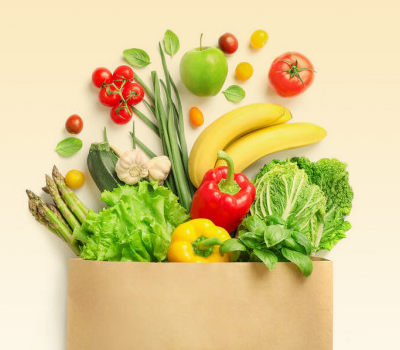
The cultivation method of organic vegetables is characterized by the exclusive use, instead of chemical fertilizers and pesticides, of organic fertilizers and, as pesticides, of natural preparations of natural predators of fungi, bacteria and insects that cause diseases in plants. The concept of organic can be understood by comparing organic and traditional agriculture: the substantial difference is not quantitative but rather qualitative.
Organic vegetables in Gurgaon: all the advantagesFruit and vegetables are indeed very healthy foods, but it is also true that pesticides and chemical fertilizers are bad for your health. If fruit and vegetables are produced using natural methods, we can undoubtedly speak of genuine products. This is the premise that should push the consumer towards organic farming products.
Choosing to consume seasonal fruit and vegetables is essential for a natural diet, as it allows you to consume products that keep their nutritional properties intact. Studies highlight that fruit and vegetables ripened during their natural period will have a greater nutritional intake and a higher quality of nutrition to our body if compared to the same fruit obtained outside of its seasonal period.
Furthermore, plants, trees, and flowers, if grown outside their natural period, will be more fragile and susceptible to diseases, parasites, fungi, and insects. This is because growing a fruit out of season requires the manipulation and control of the climate within the cultivation and the use of pesticides, insecticides, fungicides and so on.
Another factor to be considered is the price: out-of-season fruit and vegetables cost more. They are artificially grown or harvested late, processes that alter the normal nutritional values of these foods.
Why choose Organic Vegetables in Gurgaon?Are organic products better than similar conventional foods? By comparing products grown in the same physical-chemical soil conditions, organic products have demonstrated a higher content of minerals and antioxidants, including vitamin C), a lower content of nitrates in vegetables, especially leafy vegetables, the total absence of residues of pesticides, pesticides and GMO products.
A study by the University of Newcastle published by the British Journal of Nutrition shows that organic fruit, vegetables, and cereals, in addition to containing fewer pesticides, are also richer in antioxidant substances, and this greater content of antioxidants is quantified for some elements with a value of 69%. The published study is even more interesting because it explains that the researchers started by re-examining 343 studies already published on the topic and subsequently applied statistical methods to compare the different results.
Result: On average, organic products contain 17% more antioxidants, and for some classes, this figure is even higher. From the point of view of pesticides, however, the levels in non-organic vegetables are four times higher. The levels of some heavy metals, such as cadmium, are also higher, which is very harmful to our health. More antioxidants mean more well-being: there is a variation in the composition of foods depending on the cultivation method; scientific studies have linked some antioxidants to a lower risk of tumours and other diseases.